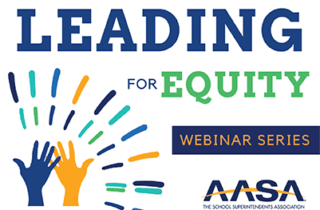Can a new type of curriculum actually turn failing schools into successful ones, and result in greater success for students as well? This question was answered affirmatively and with confirming evidence during a recent edWebinar, hosted by AASA, The Superintendents Association and AASA’s Leadership Network, with educator and author Jay McTighe, and the superintendent and deputy superintendent of Mount Vernon City School District (NY), Dr. Kenneth Hamilton and Dr. Jeff Gorman.
When educators think about diversity in the classroom, culture may be one of the characteristics that crosses their mind. But as they select their curriculum and develop their lessons, most teachers are not accounting for how culture will impact a student’s ability to participate and learn, says Dr. Almitra Berry-Jones, nationally recognized speaker, author, and consultant on the topic of culturally and linguistically diverse learners at-risk. In her edWebinar, “Cultural Relevance and Academic Equity in the Age of ESSA,” Dr. Berry-Jones explained how understanding the impact of culture, adopting a student-first mindset, and creating multiple points of engagement with the same content will help teachers move towards academic equity in their classroom.
In this engaging edWebinar, Dr. Berry-Jones explores what culture means for students, including their relationships to home, peers, and school.



